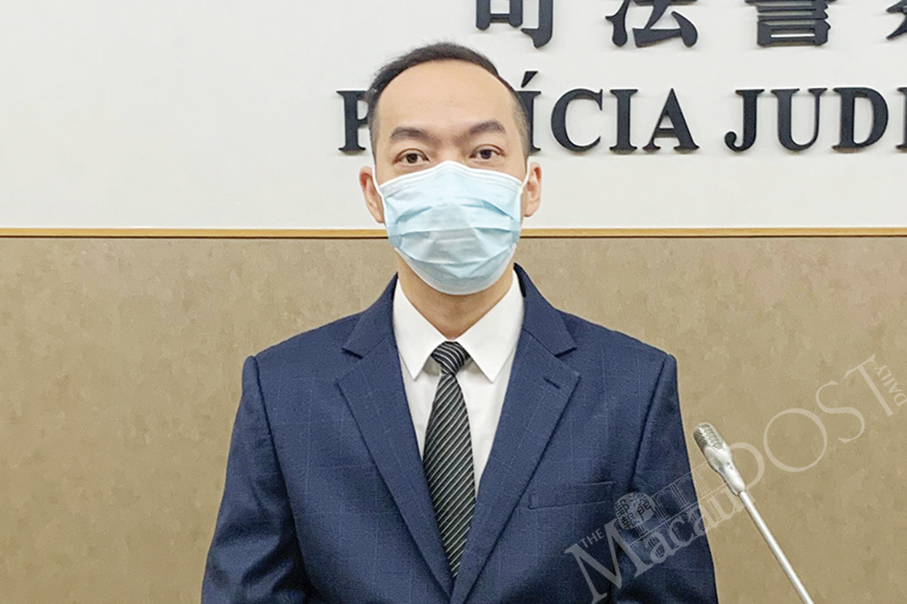Addressing yesterday’s press conference about Macau’s novel coronavirus situation, the Health Bureau’s (SSM) Control of Communicable Diseases and Surveillance of Diseases Department Coordinator Leong Iek Hou announced that the government has completed its guidelines for the city’s community associations organising receptions and banquets, according to which all those attending an indoor event with over 400 guests during which they cannot wear a facemask for over one hour – i.e. when having their meal – will be required to be tested for COVID-19 before attending the event.
Leong said that the government’s guidelines on the management of group catering events will take effect on Monday, with the aim of reducing the possible risk of the novel coronavirus spreading during the events, after considering that the city’s various community associations will organise receptions or banquets to celebrate the upcoming National Day on October 1.
According to Leong, the guidelines urge community associations to organise receptions instead of luncheons or dinners in order to shorten the duration of the event as much as possible.
The guidelines also suggest that toasts should not be made by walking from table to table during a banquet, Leong said, adding that the tables should be set at over one metre apart from each other.
According to the guidelines, the organisers will have to prepare alcohol-based handrubs for the guests, perform temperature checks on all those entering the venue, and request them to present their Macau Health Code. The organisers should also refuse admission to anyone with a fever or any respiratory symptoms, Leong said.
According to the guidelines, all guests at the venue will be required to wear a facemask all the time when meals are not served, and stick to social distancing. They can only take off their facemasks when eating, during which they should store the facemasks properly so as to prevent the environment and other objects from being contaminated, Leong said.
If practicable, self-service food and drinks should be properly packaged or covered, according to the guidelines. If many guests or staff members show similar symptoms after the event, the organisers should notify the Health Bureau of the situation, Leong said.
Leong said that according to the guidelines, all those attending an event will be required to present a nucleic acid test (NAT) certificate if the event “simultaneously” meets three conditions: 1) being held indoors, 2) involving over 400 guests in the same space, and 3) the guests cannot wear a facemask for over one hour during the event.
“All organisers and guests must obey the guidelines,” Leong said.
Alvis Lo Iek Long, a clinical director of the public Conde de São Januário Hospital Centre, said that banquets – both luncheons and dinners – are events where guests cannot wear a facemask for over one hour as they are having a meal. Lo pointed out that guests attending a reception just have to doff their facemasks when eating the snacks, which usually does not last one hour, adding that therefore guests attending receptions will not have to undergo the nucleic acid tests.
Macau has not recorded a new COVID-19 case for 83 days, while no local case has been confirmed in 172 days.
University Hospital joins NAT scheme
Meanwhile, Lo announced that the University Hospital run by the private Macau University of Science and Technology (MUST) will join the government’s NAT scheme on Monday, with 500 places available per day. People can make an appointment to undergo their nucleic acid tests at the University Hospital in Taipa from today on the NAT scheme’s online appointment system.
Lo also said that those undergoing their nucleic acid tests at the University Hospital will have their sample collected via a nasopharyngeal swab.
According to Lo, however, residents and non-resident workers will have to pay the testing fee of 120 patacas even for their first COVID-19 tests at the University Hospital, although they do not need to pay for the first test when undergoing the test at the scheme’s main testing station in the Taipa Ferry Terminal in Pac On and the testing station at the Macau Forum complex in Zape. The COVID-19 testing in both venues is carried out by the scheme’s third-party testing institution Kuok Kim (Macau) Hygiene Examination Company Limited.
The private Kiang Wu Hospital joined the government’s NAT scheme last month. Residents and non-resident workers also have to pay the testing fee for their first COVID-19 tests there.
Lo said that unlike Kuok Kim which has been commissioned by the government to carry out COVID-19 testing under its NAT scheme, the University Hospital has applied to provide the COVID-19 testing service under the government’s NAT scheme so that it is not a service outsourced by the government, just like Kiang Wu Hospital.
Health Bureau (SSM) Control of Communicable Diseases and Surveillance of Diseases Department Coordinator Leong Iek Hou (left) speaks during yesterday’s press conference about the city’s novel coronavirus (COVID-19) situation, as Alvis Lo Iek Long, one of the three clinical directors of the public Conde de São Januário Hospital Centre, looks at his tablet computer. Photo: Tony Wong





